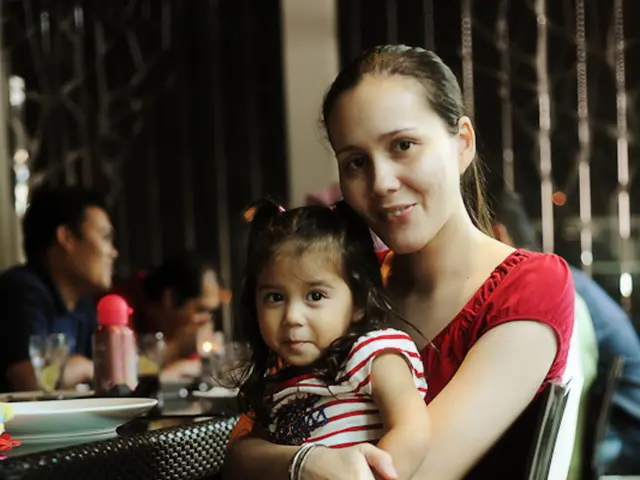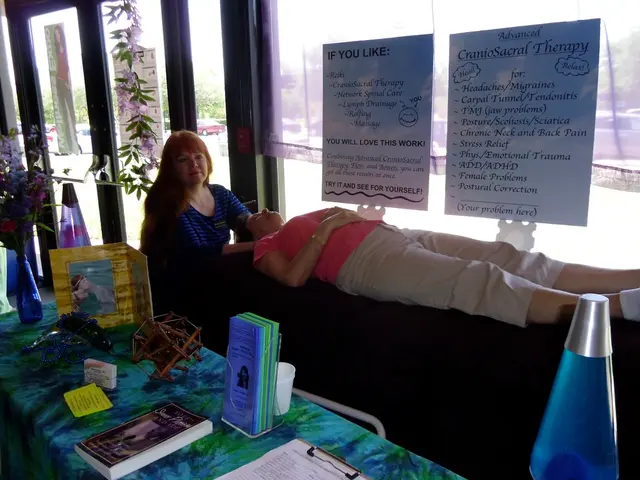Unlucky Charms or Just a Mental Block? An Alternative Take on Accident-Prone Individuals
Pondering over the possibility of oneself being more unfortunate than others?
Feeling like you're cursed with a string of misfortunes? It's not uncommon. One in 29 individuals might be more likely to experience accidents, as suggested by a study conducted by Dutch scientist Ellen Visser from the University of Groningen in 2007.
In this extensive meta-analysis, Visser analyzed 79 studies involving approximately 147,000 people from 15 different countries. The results indicated a segment of people who are especially susceptible to accidents. However, it's essential to understand that this increased risk is not solely due to personal bad luck; it's often related to external factors, like profession or location.
Is Your Mindset Trapping You?
If you often feel like a magnet for mishaps, you're not alone. Psychological factors can significantly impact our perception of accident-proneness.
An optimistic, positive mindset can lead one to view situations differently, while a predominantly pessimistic outlook might make us attribute mishaps and failures to seemingly unchangeable factors ("I'm just unlucky"). This mindset can inadvertently lead to passivity and feelings of helplessness.
According to US psychologist Dayna Lee-Baggley, It's possible to break this cycle by consciously working on our interpretation of events. She suggests focusing on the positive aspects in a situation, acknowledging the reality, and then reframing the mindset from a negative to a positive one.
Mastering the Art of Positivity
Shifting your perspective from negative to positive isn't about ignoring or downplaying setbacks, but rather about finding a silver lining in every cloud. For instance, in the event of an accident, instead of dwelling on the negative aspects, you might focus on the fact that you weren't seriously injured or note the kindness of the other driver involved.
Like any skill, reframing negative experiences requires practice. Consider making it a habit to end every challenging scenario by asking yourself, "How lucky am I?" This practice helps create a new neural connection, and over time, your brain will start doing it automatically.
The Power of Gratitude
One proven method to cultivate a more positive outlook is by taking a few moments every night to write down three positive things that happened during your day before going to bed. This simple practice can help combat the negativity bias, where negative experiences tend to linger in our memories longer than positive ones.
On a cognitive level, this shift from a reactive to a proactive mindset can be attributed to various factors, including optimism bias, illusion of control, and hindsight bias. By understanding these biases and adopting strategies to adjust our perspective, we can navigate life's curveballs with more resilience and optimism.
The Key to Navigating Your "Luck": Understanding and Adjusting
By acknowledging cognitive biases and implementing strategies like risk awareness, mindset adjustments, reframing negative thoughts, and seeking support, we can take control of our accident-proneness narrative. Instead of viewing ourselves as unlucky, we might begin to define ourselves as proactive, resilient, and capable.
Ultimately, it's not just about accepting thehand that life deals us; it's about learning to play the game with kindness, positivity, and wisdom.
It's important to note that mental health plays a significant role in how individuals perceive their accident-proneness. A predominantly pessimistic mindset, often leading to feelings of helplessness, can exacerbate this perception.
To break this cycle, one can focus on maintaining a positive mindset, particularly in health-and-wellness, mental-health, and nutrition. By consciously practicing gratitude and reframing negative experiences, individuals can navigate life's challenges with greater resilience and optimism.







